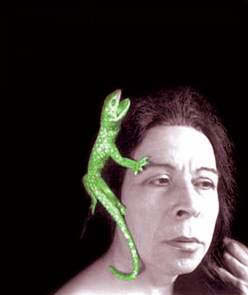Queering the class struggle.

Palaversich, Diana. “The Wounded Body of Proletarian Homosexuality in Pedro Lemebel's Loco afán”. Latin American Perspectives, Vol. 29, No. 2, 99-118 (2002). Pedro Lemebel's writings effectively challenge triumphant narratives about Chilean's economic model, pointing at the marginal subjects that inhabit the city. As well, it emphasizes the "transvestism" of Chilean identity, especially in terms of class and race. He also shatters any project of unitary or global "gay identity" by showing the multiplicity of particular lived experiences of "locas" and other queers marked not only by their sexuality but also by poverty, ethnicity, and AIDS. Moreover, Lemebel engages with three traditions and political projects —gay politics, the Left political agenda, and postmodernism— without being subsumed by any of them. Lemebel's resistance to the global anglo-centered gay identity project (which has also been adopted by Latin American homosexual groups...